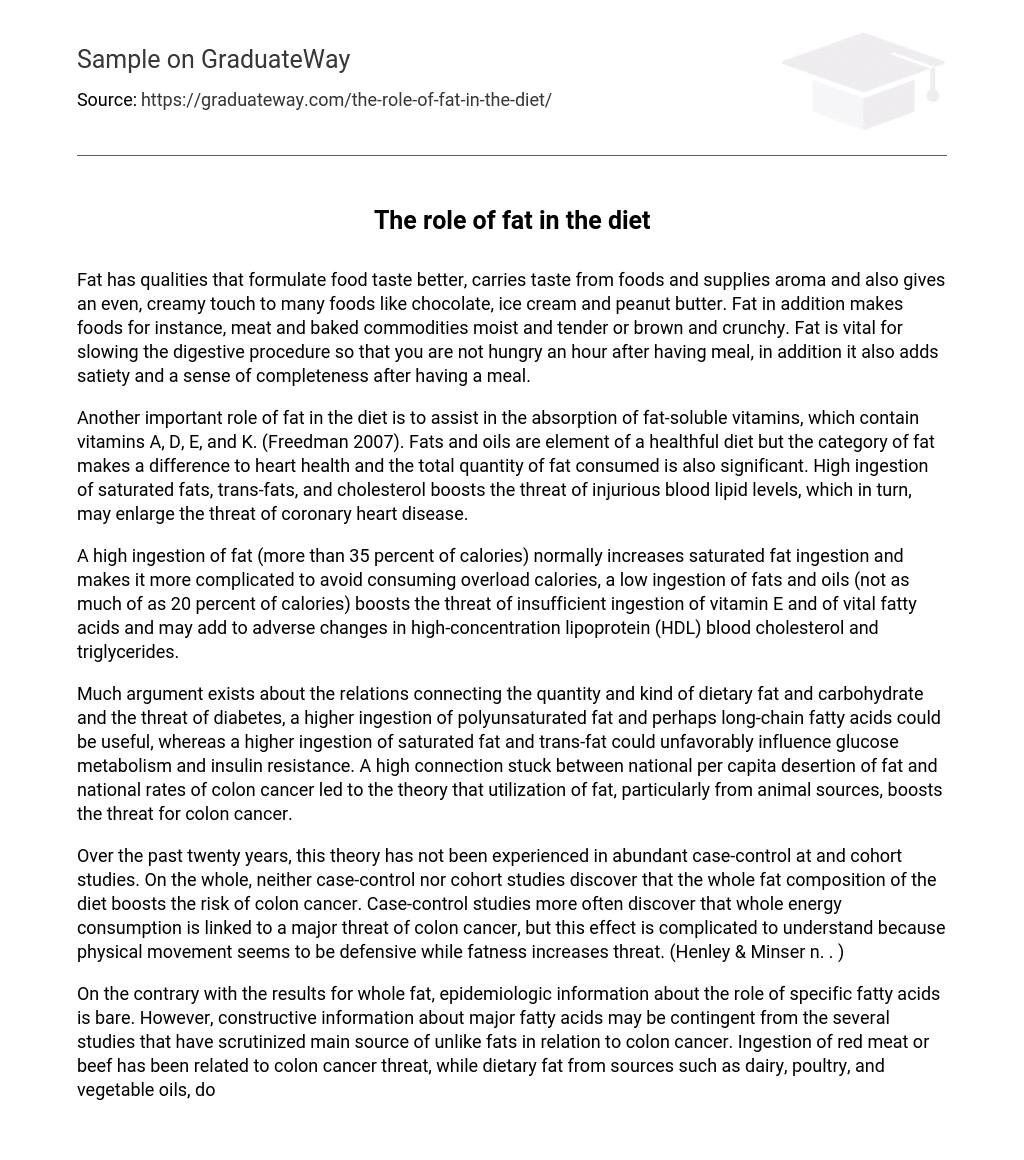Fat has qualities that formulate food taste better, carries taste from foods and supplies aroma and also gives an even, creamy touch to many foods like chocolate, ice cream and peanut butter. Fat in addition makes foods for instance, meat and baked commodities moist and tender or brown and crunchy. Fat is vital for slowing the digestive procedure so that you are not hungry an hour after having meal, in addition it also adds satiety and a sense of completeness after having a meal.
Another important role of fat in the diet is to assist in the absorption of fat-soluble vitamins, which contain vitamins A, D, E, and K. (Freedman 2007). Fats and oils are element of a healthful diet but the category of fat makes a difference to heart health and the total quantity of fat consumed is also significant. High ingestion of saturated fats, trans-fats, and cholesterol boosts the threat of injurious blood lipid levels, which in turn, may enlarge the threat of coronary heart disease.
A high ingestion of fat (more than 35 percent of calories) normally increases saturated fat ingestion and makes it more complicated to avoid consuming overload calories, a low ingestion of fats and oils (not as much of as 20 percent of calories) boosts the threat of insufficient ingestion of vitamin E and of vital fatty acids and may add to adverse changes in high-concentration lipoprotein (HDL) blood cholesterol and triglycerides.
Much argument exists about the relations connecting the quantity and kind of dietary fat and carbohydrate and the threat of diabetes, a higher ingestion of polyunsaturated fat and perhaps long-chain fatty acids could be useful, whereas a higher ingestion of saturated fat and trans-fat could unfavorably influence glucose metabolism and insulin resistance. A high connection stuck between national per capita desertion of fat and national rates of colon cancer led to the theory that utilization of fat, particularly from animal sources, boosts the threat for colon cancer.
Over the past twenty years, this theory has not been experienced in abundant case-control at and cohort studies. On the whole, neither case-control nor cohort studies discover that the whole fat composition of the diet boosts the risk of colon cancer. Case-control studies more often discover that whole energy consumption is linked to a major threat of colon cancer, but this effect is complicated to understand because physical movement seems to be defensive while fatness increases threat. (Henley & Minser n. . )
On the contrary with the results for whole fat, epidemiologic information about the role of specific fatty acids is bare. However, constructive information about major fatty acids may be contingent from the several studies that have scrutinized main source of unlike fats in relation to colon cancer. Ingestion of red meat or beef has been related to colon cancer threat, while dietary fat from sources such as dairy, poultry, and vegetable oils, does not increase threat of colon cancer.
The obvious influence of red meat does not seem to be mediated all the way through its whole lipid content, signifying that other factors for instance heterocyclic amines produced at some stage in cooking may be serious. Systems whereby fat or red meat may persuade colon carcinogenesis are discussed, though none emerge compelling. (Robb 1996). Low-fat high-carbohydrate diets are suggested to avoid weight gain in standard weight subjects and decrease body weight in flabby and obese, however, their effectiveness is contentious.





